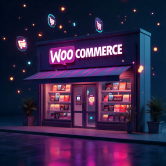Ecommerce has entered a new era where customer expectations demand speed, personalization, and seamless interactions across multiple channels. Traditional Shopify setups have powered millions of businesses, but as brands scale, the limitations of theme-based structures often become apparent. Enter headless Shopify development, a future-ready approach that separates the front-end from the back-end to deliver unmatched flexibility and performance.
In headless commerce, Shopify remains the powerful engine that manages products, payments, and orders, while APIs connect it to a fully customized front-end. This allows businesses to design unique experiences, integrate advanced tools, and deliver fast, omnichannel journeys that standard Shopify setups cannot easily achieve.
For enterprises aiming to stay ahead in 2025, headless commerce Shopify is more than a buzzword—it’s a competitive advantage. By using APIs to build fast, flexible, and scalable storefronts, businesses can adapt quickly to market shifts and deliver consistent experiences across web, mobile, apps, and even IoT devices.
Curious whether this is the right move for your business? Our Shopify Store Development experts provide tailored guidance and custom Shopify solutions to help brands decide if headless commerce is the right fit.
API-Driven Builds: The Power of Decoupling
At the heart of headless commerce lies the API-driven approach. Unlike traditional stores where the front-end and back-end are tightly linked, headless setups use APIs to connect Shopify’s backend with custom-built frontends.
- Freedom of Design: Developers can build storefronts in React, Vue, or Angular without being constrained by Shopify themes.
- Seamless Integrations: APIs allow for advanced integrations with CRMs, ERPs, marketing tools, and personalization engines.
- Faster Innovation: Brands can experiment with new designs, features, or experiences without disrupting the entire system.
- Future-Proofing: APIs make it easier to adopt new technologies like AR product previews or voice commerce.
API-driven builds are the backbone of headless Shopify development, empowering businesses to create unique experiences that stand out in competitive markets.
Speed: Faster Experiences That Convert
In ecommerce, speed directly impacts conversions. Customers expect pages to load in seconds, and every delay reduces sales. Headless commerce delivers a dramatic boost in performance.
- Lightweight Front-Ends: Decoupled storefronts can be optimized for speed without relying on Shopify’s Liquid templates.
- CDN Delivery: Content is distributed through global networks, reducing latency.
- Reduced Dependencies: Front-ends pull only the data they need, cutting unnecessary load times.
- Improved Mobile Performance: Headless builds ensure mobile-first experiences that feel like native apps.
By prioritizing performance, headless commerce Shopify stores achieve faster load times, better engagement, and higher conversion rates.
Flexibility: Customization Without Limits
One of the biggest advantages of headless Shopify is flexibility. Businesses no longer have to compromise between functionality and brand identity.
- Custom Workflows: From subscription models to advanced B2B pricing, headless setups allow custom business logic.
- Tailored Designs: Creative teams can design user experiences exactly as envisioned, without theme restrictions.
- Agility: New features can be tested and rolled out independently of the backend.
- Scalable Growth: As businesses expand, headless systems adapt to complex product catalogs and international markets.
With custom Shopify solutions, companies gain the freedom to innovate without being boxed in by template limitations.

Omnichannel Experience: Meeting Customers Everywhere
Today’s shoppers don’t just buy through websites. They interact across social platforms, mobile apps, marketplaces, and even in-store digital touchpoints. Headless Shopify enables businesses to deliver consistent experiences across all of these channels.
- Unified Backend: Shopify manages inventory, orders, and payments, while APIs connect this data to multiple channels.
- Seamless Shopping: Customers can browse products on Instagram, purchase on mobile apps, and pick up in-store, all powered by a single system.
- Personalization: Data flows across channels, allowing businesses to deliver personalized recommendations wherever the customer interacts.
This omnichannel approach is a key reason why headless Shopify development is becoming the future of ecommerce. It allows brands to meet customers where they are, while maintaining a cohesive experience.
Conclusion
Headless Shopify is reshaping ecommerce by combining the reliability of Shopify’s backend with the freedom of API-driven frontends. With advantages in speed, flexibility, and omnichannel capabilities, it offers a future-ready solution for businesses ready to scale.
For brands with complex needs, high traffic, or global expansion plans, headless commerce Shopify unlocks possibilities beyond traditional setups. While the approach requires higher investment and technical expertise, the payoff comes in performance, conversions, and customer loyalty.
Thinking about making the switch? Our Shopify Store Development experts provide custom Shopify solutions designed to deliver speed, scalability, and innovation in a headless environment.




